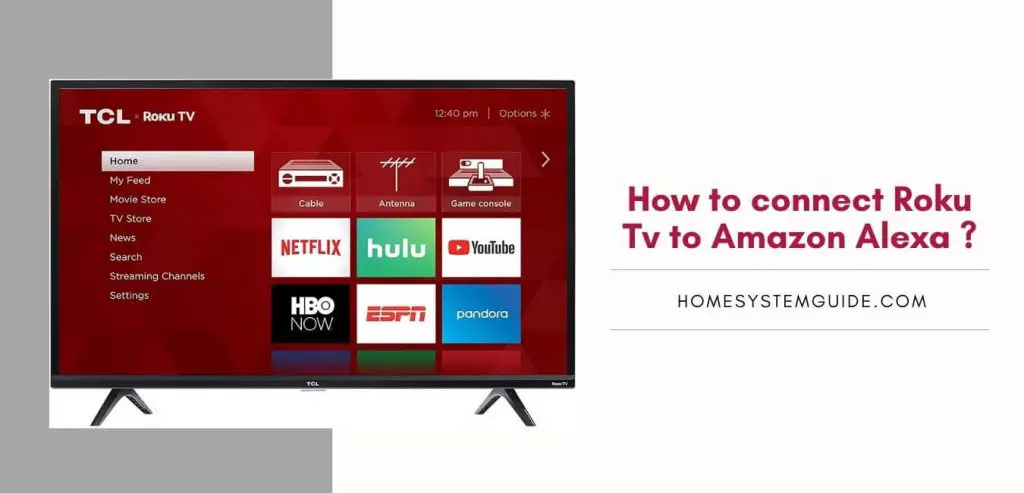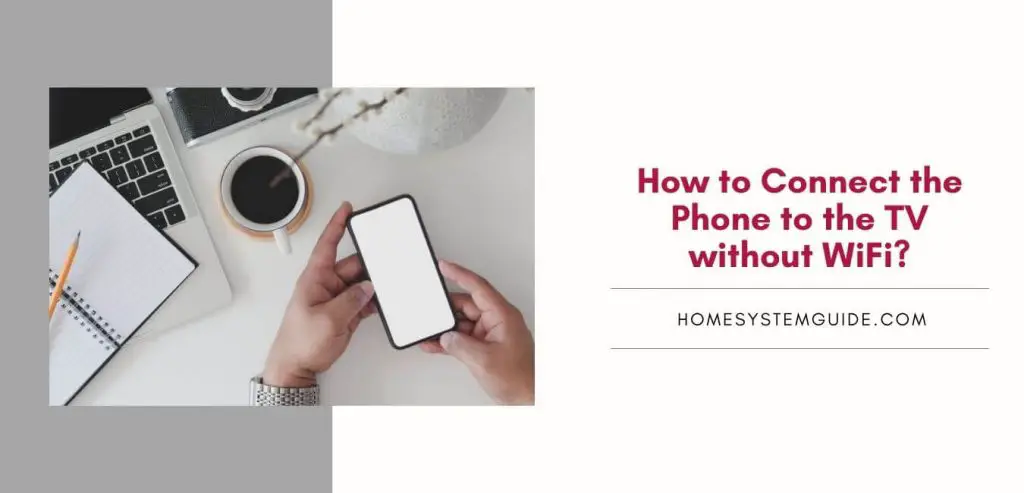If you’re browsing the internet on your phone, it’s possible for a mobile data connection to be faster than a Wi-Fi connection – but this is going to depend on a number of factors. The speed of any given broadband package depends on a huge variety of variables – the quality and age of the line, how far away you are from the exchange, whether there’s a fault on your line and what your neighbors are doing online.
In most circumstances, when you’re surfing from a mobile device, you’ll be using a 3G or 4G connection provided by one of the UK’s mobile networks—in this situation, you won’t have a choice of broadband package to choose from since they will supply their consumers with data in chunks at whatever speeds they can manage in your area. As a result, if you have even the most basic plan available, it may well be faster than Wi-Fi.
What about the router? Does the router affect the speed of Wi-Fi?
Wi-Fi connections vary hugely depending on the quality of your router and also how far away from it your device is. If you’ve got an older router it might not be very good at sending and receiving data, in which case your phone will struggle to get anything like the maximum speed out of it that it can. Also, if your router isn’t in the same room as you then this will slow things down too.
How fast is the average broadband?
According to Ofcom, the UK’s average download speed for broadband is 18Mbps (Megabits per second), with upload speeds averaging 6Mbps. So let’s say you had a connection of 6Mbps upload and 18Mpbs download – on Wi-Fi it would take around five seconds to send a ten-megabyte file from one computer to another, but on 3G/4G it would take around two and a half seconds. If you had the UK average broadband speed of 18Mbps download and 6Mbps upload – sending that same file over Wi-Fi would take around four and a half seconds, but if your phone was connected to 3G or 4G then this would drop to two and a quarter seconds.
So in theory (and disregarding all other factors), it is possible for mobile data connections to be faster than Wi-Fi. However, as mentioned above there are plenty of mitigating factors.
WiFi vs Mobile data
WiFi (Wireless Fidelity) is a wireless internet connection provided by a device called a router that is connected to a modem. The modem does the main job of creating a network through the service provider and the router allows you to connect your devices to the internet without any wired connection. This again means that your ISP has access to almost everything that you’re doing on the internet.
Mobile data essentially functions the same way WiFi does. But the major difference here is that the signal is provided by your mobile service provider instead of certain Internet Service Providers (ISPs). Unlike WiFi networks, mobile data connections are much more secure as they are encrypted and are safe from common vulnerabilities.
Here are some major differences between Mobile data (4G) and WiFi
Speed: Theoretically speaking, WiFi’s internet speed beats Mobile data any day. But in real life, internet speed is subjected to many conditions like access, location, and service providers. Also, the congestion in the network plays a huge role while defining the internet speed. The bandwidth limit on your WiFi plan might put a limitation on the potential speed of the internet. LTE technologies can provide a speed between 100 Mbps to 1 Gbps whereas WiFi can offer a speed range of anywhere between 11 Mbps to 1 Gbps. The newer WiFi 6 can offer an internet speed of around 10 Gbps.
Range: WiFi is accessible in a limited range and depends on the capability of the router. The typical range of access is around 100 to 150 ft. Mobile data has a far greater range as the cellular towers can cover a range of many miles. The use of different radio frequencies also plays a huge role in defining the range of networks.
Network Stability: When it comes to the stability of connections, mobile data wins, provided that the area has decent cellular coverage of the particular mobile data service provider. WiFi network stability depends on the quality of the router and its placement along with congestion in the network.
Operating frequency band: The operating frequency bandwidth for 4G LTE is between 3400 MHz to 3600 MHz and 3600 MHz to 3800 MHz. The same for a typical WiFi is between 2400 MHz to 2483.5 MHz and 5725 MHz to 5820 MHz.
Mobility and usage on the go: You can carry your phone with your SIM card in it to any place you want (within the defined range) and still get access to the internet on your phone. But, WiFi connections like one at your home or the office are a fixed-line and the network disappears as soon as you are out of range. You cannot carry a wired line with you. There are multiple options to use mobile broadband on the go. Devices like MiFi and dongles allow you to access the internet anywhere. You can also create a hotspot with your mobile phone to access the internet on other devices that cannot use the data SIM card directly.
Why is WiFi sometimes slower than mobile broadband?
WiFi connections though limited in the range of coverage are generally faster than mobile broadband networks. Since the connection is a wired one, it also should be stable in the range of the router. But the WiFi internet speed can become slower than your mobile data speed and there are many reasons for that. Let us see the major ones:
Your Router position is not optimum: Bad placement of the router in the home or work environment is one of the most common reasons for poor WiFi performance. Cellular networks use radio waves that have greater reach and higher penetration and you really cannot control both of these factors. But with WiFi connections, you need to find the optimal spot at your location for the router. Depending on the specifications and features of the router, it can cover a maximum of 100 feet but it is slowed down by large and opaque objects like walls, floors, etc.
Congested traffic: Congestion is another vital factor that hampers the internet speed provided by the WiFi network. Routers are designed to operate and send signals on specified frequency channels. If there are other routers in your vicinity operating on the same channel, the channel gets congested and degrades the performance for all the users at once. This problem is quite common in apartment blocks where each flat uses a router in a crammed-up space. You can use apps the WiFi Analyzer (Android) to assess the situation.
Noise from other electronics appliances: Devices in your home such as wireless doorbells, microwaves, and cordless telephones commonly interfere with the router that supports the 2.4 GHz band. These days, modern routers support both 2.4 GHz and 5 GHz, bands. 5 GHz bands are less susceptible to interferences. You can enable this setting in your router quite easily. You should make sure that all your devices support the 5 GHz band or they won’t run.
The network is inherently slow: There might be situations where the internet speed is slow inherently. At home, heavy taskings like streaming movies and downloading kinds of stuff cause the network to go down. But in a public place, the WiFi speed varies quite a lot and you might have no idea about the reason.
Your VPN is notoriously slow: If you’re using a free VPN app, your internet speed might take a big hit on speed. You can check for the same by disabling your VPN and getting online directly. So, you need to be smart while choosing VPN solutions to extract the optimum performance.
I pay for fast broadband- why is my WiFi slower than my phone 4G?
It is highly unlikely but possible that you have a good home broadband infrastructure and still face a slowdown in the internet speed. If you’re not getting the broadband speed that you’re paying for then there can be few reasons for the same.
An old router: If your router is an old one then it is possible that it is outdated and doesn’t support higher frequency bands of connections. So, even though your ISP is providing you a faster connection, your router is failing to relay the same to your devices. You need to upgrade your router and your broadband speed might improve significantly.
Multiple users at the same time: In a household network, if all the family members get online at the same time and start using the internet for tasks like streaming, downloading, etc, then the WiFi speed will go down due to congestion. This again can be improved by buying a router that supports multiple users without suppressing the internet speed.
Peak period usage in the neighborhood: The frequency band in which a network operates might get busy due to multiple networks trying to use the same channel. During the evening or night, when everyone is using their devices, the channels get crowded and leads to throttling of your speed.
What else can I do to get faster Wi-Fi?
Here are some solutions that you can deploy to increase the speed of your WiFi.
Switching between frequencies: If you feel the internet speed is throttled due to low broadcast frequencies, you can change the broadcast frequency from the lower 2.4 GHz to 5 GHz. It is well known that the range of coverage of the former is higher but the latter one provides faster speed. For this, you need a modern router manufactured after 2014 as routers before that didn’t have support for dual frequencies.
Changing the channel: You can use apps like “WiFi Analyzer” on your Android device and “Network Analyzer Lite” on iOS devices to check the channel on which your broadband is operating. If you see your connection along with a bunch of other connections, you can log in to your router settings and change the channel. You can go to wireless settings and opt for a channel that has no other access points using it or has the fewest access points using it.
Use WiFi range extender: If the place is huge for the router to reach every nook and corner then you can buy a device called a WiFi range extender. These devices boost your current WiFi signal and increase the speed along with the reliability of the network.
Move the router to a better location: If purchasing an accessory like a WiFi range extender is not your cup of tea, then you can try simple techniques like moving the router near the devices that need faster internet speed. You should also remove any other electronic devices that may interfere with the WiFi signal.
Your device’s WiFi receiver might be outdated: In case your broadband plan and infrastructure are all set for faster internet speed and you’re still getting a slowdown, you might need to check the devices you’re working on. Older hardware might have WiFi receivers that are outdated and are not compatible with current bandwidths. Typical desktops are not made to run the internet via WiFi and you might be using an external WiFi adapter for that. This can also decrease the speed of the adapter is a cheap or old one.
Check if there are unknown users of your WiFi network: WiFi bandits are common and they often hog your bandwidth without your knowledge and you suffer due to slow internet speed. You need to set up a strong password and set the security protocol to one of the following:
- WPA + WPA2
- WPA + WPA2 PSK (The best of all)
- WPA2
- WPA2 PSK
- WPA2 + AES
Choose one of the above alternatives except “none” and “WEP”.
Use a wired connection: If none of the solutions pointed above does the job for you, you can also try a wired connection via an Ethernet cable for each device. You can also add an Ethernet Splitter to increase the number of Ethernet ports so that all the devices at a place can get a wired connection. Wired broadband is fast and reliable. You won’t be able to use this technique with your phones or tablets as they don’t have an Ethernet port. But again, this is one of the last resort and there are some limitations to the idea.
Using a Powerline Adapter: If your devices like desktops or gaming consoles are far from the router and you don’t want to lay wires all across the house, you can use Powerline Adapters. They transmit signals using the electrical circuit and are safe.
Update the firmware of the router: Sometimes, routers function badly due to outdated firmware. While manufacturers mostly provide updates every few months, you can install them manually by visiting the manufacturer’s website and downloading the firmware from there. Next, you can upload the firmware file after logging into your router’s settings. You can take the help of the router manual if any confusion arises.
Sometimes a simple Factory Reset does wonder: Your router is provided with a button on the underside for this action. You can use a paperclip or a needle to press the button for few seconds and the router is reset. After it is done, you need to reconfigure your router as per your need. This can boost your internet speed as previous settings might have been changed a lot and were not optimal for higher internet speeds.
How to make mobile data faster?
Slow mobile data is frustrating and upsetting at the same time. So, here are few tricks you can use to pace up your data connection speed.
- Turning off your phone or Turning on Airplane mode: This is a tried and test hack to increase the speed of your mobile internet connection. You can either restart your phone. If that is not convenient for you, simply put the mobile phone on Airplane mode and wait for 30 to 50 seconds before turning it on.
- Removing your SIM Card: This is another hack from the bag of tricks. You can remove the SIM card from the phone while it is turned on and insert it again. This might just work for you.
- Try changing your location: Mobile data signals vary from place to place. Sometimes being inside a building or in a congested place doesn’t allow the signals to travel properly. You can change your location to see if the signal and speed of the mobile data increase.
- Disable and update the apps that are Network-hogger: There is a chance that an app on your phone has gone rogue and starts using the network heavily. You can check for the same on your phone and disable such apps from using the LTE network.
- Your VPN might be an issue: As I said above, a free VPN sometimes kills the speed of the network. You can see if your VPN is on and try using the internet without enabling it.
- Turn off the Data Saver mode: Smartphones have features to cut down on data usage by enabling low data mode or data saver mode. Check if any such feature is toggled on and turn it off.
- Your premium data speed is exhausted: Your mobile plan might have a usage cap that you are not aware of. If the cap is reached, the speed drops down to a secondary one which is pretty slow.
- Sometimes Network Outage is the culprit: If none of the tricks above work, then there is a chance that you are a victim of a network outage. This kills the speed and sometimes the connection is lost as well. You can check for the same on websites like Downdetector. If the issue is real, you will see other users reporting for the same.
- The last resort “Reset your network setting”: You can reset your phone’s network setting but this will have consequences. This will reset everything to its default including your WiFi access points, Bluetooth devices, and other networks. If you can live without them, go ahead and give it a try.
Can I use my phone internet all the time?
Yes, you can use your phone internet all the time if it is faster than the fixed-line broadband internet services. You can use your phone as a hotspot device and connect other devices like laptops and tablets to the network. But you need to consider few things before doing this.
- Make sure you have enough data or your daily data cap is capable enough to make it through the day with the usage your desire.
- You can always opt for an unlimited data SIM or data plan. They do come at hefty prices.
- Always make sure that the LTE connection is stable round the clock and in all sorts of weather.
- The next thing to consider is the connection to your other devices. If you plan to use mobile internet on your other devices for extended hours, you might want to consider mobile broadband like a dongle or MiFi device rather than your phone.
Using 4G for home internet: How to use 4G internet as home broadband?
4G internet speeds are so impressive that it is common to get tempted to use it for home internet. Here are three methods to use 4G as your home broadband.
- A 4G WiFi Router: You can purchase a device like Three’s Plug and Play Home Broadband or Gigacube from Vodafone. These 4G WiFi routers create a wireless network that extends throughout your home and you can connect multiple devices to it effortlessly.
- Using a dongle or MiFi device: Both dongles and MiFi devices use data SIM to provide an internet connection. While dongles can be inserted into the USB ports of a computer to get online, MiFi devices create a hotspot and you can connect multiple devices to it.
- Tethering from your smartphone: If your phone has a 4G mobile data plan, you can simply enable the WiFi hotspot and connect other devices to it. The battery of your phone is bound to discharge quickly with this. So, you need to connect the phone to a constant power source if you want to apply this method.
Can 4G replace fixed-line home broadband?
With the current speed that 4G comes with, we are tempted to agree with the argument but there are some other things to consider.
Advantages of 4G home network over fixed-line broadband
- The plans and packages are flexible. There are many custom plans to choose from.
- Speeds are insanely fast and they sometimes win over the ADSL home network connections
- Portability is a big advantage with 4G mobile broadband. So, you can take it with you to places where internet connectivity is sparse or unavailable.
- Your costs are reduced as you don’t have to pay for home broadband, line rental, and a data plan.
Downsides of 4G over fixed-line home broadband
- The download speed on Mobile broadband is restricted and thus is slower than the most affordable fixed-line connections. You can get an unlimited 4G plan but the cost is much more than an unlimited WiFi plan.
- Tethering is not permitted by all the plans and you have to shell out extra money for that. Also, with tethering the download limits are capped.
- Reliability is an issue as network outage is quite common with mobile broadband.





